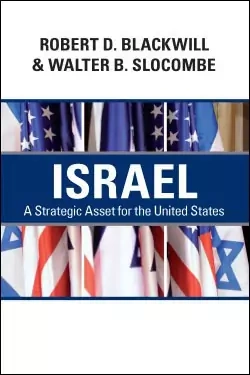
Israel
A Strategic Asset for the United States

- Report
More on:
Overview
Over the decades, American leaders have primarily explained the foundations of the U.S.-Israel relationship by properly citing shared democratic values and the moral responsibility America bears to protect the small nation-state of the Jewish people.
While accurate and indispensably important, this characterization of the core basis of the U.S.-Israel relationship is incomplete because it fails to capture a third, crucial aspect: the many ways in which Israel advances U.S. national interests. Today, Israeli contributions to U.S. national interests range across a broad spectrum.
Robert D. Blackwill, Henry A. Kissinger senior fellow for U.S. foreign policy at the Council on Foreign Relations and former deputy national security adviser for strategic planning and U.S. ambassador to India, and Walter B. Slocombe, senior counsel at Caplin & Drysdale and former undersecretary of defense for policy and senior adviser for national defense in the Coalition Provisional Authority for Iraq, make the case in a coauthored report that Israel is a strategic asset for the United States. The report was sponsored by the Washington Institute for Near East Policy.
More on:
In the News
Why Israel Is a Strategic Asset to the United StatesWashington Institute for Near East Policy
Israel Is a Stretegic Asset After All: Think Tank Rebuts View That Downside Outweighs BenefitsWashington Institute for Near East Policy
 Online Store
Online Store
